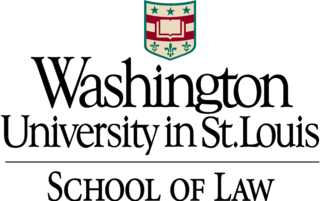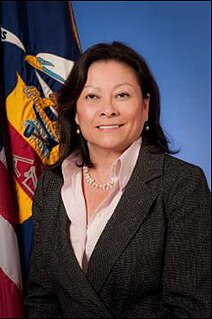History
The Thomas Tang National Moot Court Competition was founded in 1993 by the Asian Pacific-American Law Student Association ("APALSA") of the South Texas College of Law, Houston, Texas. The competition came about as a result of an intense debate among three South Texas College of Law ("STCL") students - Kevin Pham, Pam Rea, and John Tang - over the need for a moot court competition that would celebrate the growing Asian American presence and influence in the American legal system and would simultaneously encourage law students to analyze issues that impact Americans from all backgrounds. These three students, along with every other member of the South Texas College of Law APALSA organization during 1993, mobilized their efforts, to bring about the competition as a lasting contribution to the legal education community. Rea authored the moot court case and the local rules for the competition, while Pham and Tang relentlessly sought and obtained support from the law school's administration and the local Asian American Bar Association ("AABA") of Houston, and provided leadership to the many student volunteers needed for a successful outcome. Both the Houston Chapter of the AABA and South Texas College of Law embraced the APALSA students' vision and supported their efforts, but the organization and efforts that resulted in the highly successful first year of the Tang were the result of the collaboration among law students who pursued a vision to contribute to the opportunities available to Asian American law students. The success of the Tang was realized in the first year, as law students traveled from all over the United States to participate in the competition.
Thomas Tang was a United States Circuit Judge of the United States Court of Appeals for the Ninth Circuit and the first American of Chinese descent appointed to the federal judiciary.
The students who founded the competition named it after the highest ranking Asian American justice at that time, The Honorable Thomas Tang, the senior judge on the Federal Court of Appeals for the Ninth Circuit. Justice Tang greatly honored the students of STCL and the participating competitors, when he personally attended the 1993 competition and presided over Final Round. In his remarks to the participating students in 1993, Justice Tang noted the efforts of the law students in creating opportunity and change, and challenged future law students to seek out ways of their own to enhance the legal profession and advance the involvement of persons from all backgrounds in our justice system.
The Tang is now administered by the NAPABA Law Foundation and the NAPABA Judicial Council, whose leadership continues to offer law students the opportunity to deepen their understanding of the complexities and strength of the American justice system as it applies to all Americans. The Competition continues to honor the late Judge Thomas Tang, a champion of individual rights, an advocate for the advancement of minority attorneys, an ardent supporter of NAPABA and the moot court competition. Judge Tang served on the United States Ninth Circuit Court of Appeals from 1977 until his death in 1995. Judge Tang's wife, Dr. Pearl Tang, continues the legacy and participates every year.

The United States Court of Appeals for the Ninth Circuit is a U.S. Federal court with appellate jurisdiction over the district courts in the following districts:

Loyola University Chicago School of Law is the law school of Loyola University Chicago, in Illinois. Established in 1909, by the Society of Jesus, the Roman Catholic order of the Jesuits, the School of Law is located in downtown Chicago. Loyola University Chicago School of Law offers degrees and combined degree programs, including the Doctor of Juridical Science (S.J.D.). Loyola University Chicago and its Water Tower campus also holds art exhibitions and other cultural events.

Loyola Law School is the law school of Loyola Marymount University, a private Catholic university in the Jesuit and Marymount traditions, in Los Angeles, California. Loyola was established in 1920. It is named in honor of St. Ignatius of Loyola, the Spanish intellectual and founder of the Jesuits. The Frank Gehry-designed campus is located near downtown Los Angeles.

The University of San Diego School of Law, commonly referred to as USD Law, is a law school located on the 182-acre (0.74 km2) campus of the University of San Diego in San Diego, California in the community of Linda Vista. Founded in 1954, the law school has held ABA approval since 1961. It joined the Association of American Law Schools (AALS) in 1966.

Patrick Errol Higginbotham is a Senior United States Circuit Judge of the United States Court of Appeals for the Fifth Circuit.

Syracuse University College of Law (SUCOL), founded in 1895, is a Juris Doctor degree-granting law school of Syracuse University in Syracuse, New York. It is one of only four law schools in upstate New York. Syracuse was accredited by the American Bar Association in 1923 and is a charter member of the Association of American Law Schools. As of the 2017-2018 academic year, 565 students were enrolled in the College of Law.

The John Marshall Law School is a law school in Chicago, Illinois, that was founded in 1899 and accredited by the American Bar Association in 1951. The school was named for the influential nineteenth-century U.S. Supreme Court Chief Justice John Marshall.

Gujarat National Law University (GNLU) is a National Law University established under the Gujarat National Law University Act, 2003 in the state of Gujarat. The university is located at Gandhinagar, which is the capital of Gujarat and is located 23 kilometers north of the city of Ahmedabad. The statute provides that the Chief Justice of India or a Senior Supreme Court Judge serve as the Visitor of the university. The Director, Bimal N. Patel serves as the chief administrator. The university started in 2004 and has five batches of 180 students each under training.

The Philip C. Jessup International Law Moot Court Competition, also known as the Jessup Moot, is the oldest and largest international moot competition in the world, attracting participants from almost 700 law schools in more than 90 countries in recent years. The competition has been described as the most prestigious moot court competition in the world by a large number of organisations and universities internationally, and is one of the grand slam or major moots.

Washington University in St. Louis School of Law is a private American law school located in St. Louis, Missouri. The law school is one of the seven graduate and undergraduate schools at Washington University in St. Louis.
Founded in 1867, the School of Law is the oldest continually operating private law school west of the Mississippi River. Originally, the law school was located in downtown St. Louis, but it relocated in 1904 to the Danforth Campus of Washington University in St. Louis, and is housed in Anheuser-Busch Hall. It is ranked 18th among the 203 American Bar Association-approved law schools by U.S. News & World Report. Its clinical training and trial advocacy programs have consistently ranked in the top ten according to the same source.

Loyola University New Orleans College of Law is a private law school in New Orleans, Louisiana affiliated with Loyola University New Orleans. Loyola's law school opened in 1914 and is now located on the Broadway Campus of the University in the historic Audubon Park District of the city. The College of Law is one of only fourteen Jesuit law schools in the United States. It is also one of only a few law schools in the nation to offer curricula in both Civil Law and Common Law. The school releases several academic journals, most notable of which is the Loyola Law Review.

St. John's University School of Law is a Roman Catholic law school in Jamaica, Queens, New York, United States, affiliated with St. John's University.

St. Mary's University School of Law is one of the professional graduate schools of St. Mary's University. The law school is located in San Antonio, Texas, USA and is the only Catholic law school in the American Southwest. The University is a private Catholic university. The School of Law has an enrollment of about 770 students, pursuing Juris Doctor (J.D.), Master of Laws (LL.M.), or Master of Jurisprudence (M.Jur.) degrees. St. Mary's is the first law school in Texas to offer the M.Jur., a graduate degree in the study of law for students not seeking to enter the practice of law.

The University Law College, Bangalore University, popularly known as ULC - Bangalore, is a legal education institution located in the city of Bangalore, Karnataka, India.

Patricia Ann Shiu is the former Director of Federal Contract Compliance from 2009 to December 1, 2016 during the administration of Barack Obama. Prior to joining the Department of Labor, Shiu worked as Vice President for Programs at the Legal Aid Society-Employment Law Center in San Francisco. She worked there for 26 years. Shiu also worked as an associate at the law firm of Pillsbury, Madison & Sutro.
The California International Law Center is a research center at the University of California, Davis School of Law that focuses on international, comparative, and transnational law. It works to promote scholarship, curricular and career development, and partnerships with organizations such as the American Society of International Law and the Robert F. Kennedy Center for Justice and Human Rights. It was founded in 2009. CILC's director is Diane Marie Amann, a distinguished scholar in the area of international law. The acronym "CILC" is pronounced as "silk." CILC sponsors the Asylum and Refugee Law National Moot Court Competition.
The National Moot Court Competition is one of the oldest moot court competitions in the United States. Co-sponsored by the New York City Bar Association and the American College of Trial Lawyers, the competition includes up to 191 teams from 124 law schools, who compete in regional competitions in November with the top two in each region advancing to the national competition held in the landmark House of the New York City Bar Association in February.
Donna M. Ryu is currently a U.S. Magistrate Judge of the United States District Court for the Northern District of California.
Nathanael Cousins is currently a U.S. Magistrate Judge of the United States District Court for the Northern District of California.
















